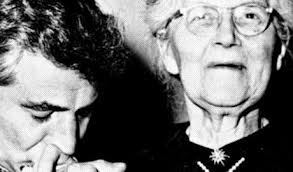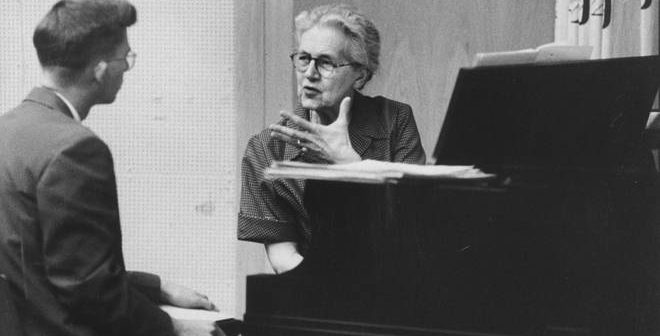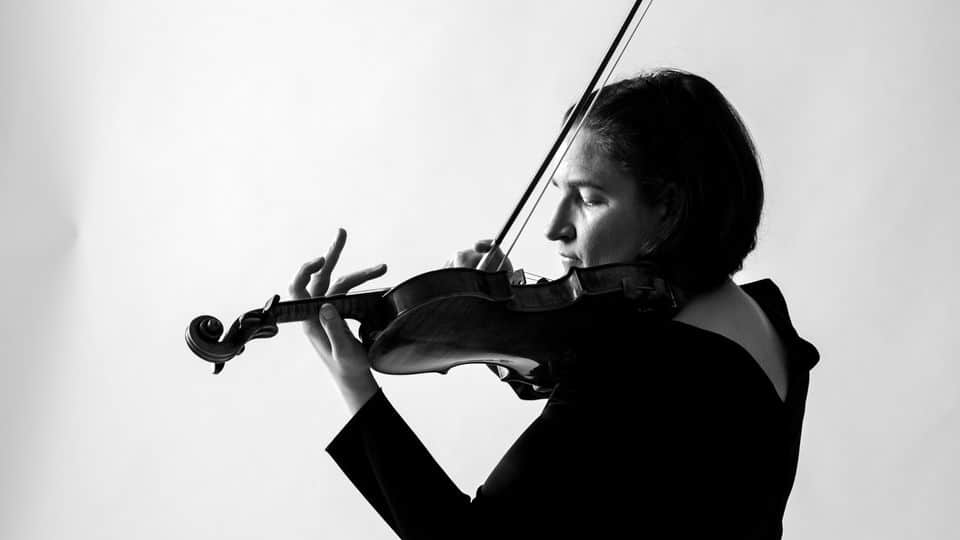She taught them all they knew
mainFrom the latest Lebrecht Album of the Week:
An unprepossessing Parisian teacher of piano and solfège received an unexpected career boost when the victorious General Pershing opened a French music school for Americans at Fontainebleau in 1921…
Read on here.

And here.

In The Critic here.
In Czech here.
Portuguese here.
Spanish here.
More languages follow.





Here is some Nadia Boulanger:
https://www.youtube.com/watch?v=GXq6T22XRU8
https://www.youtube.com/watch?v=Cr3b36qw2fQ
https://www.youtube.com/watch?v=ctt-H-NtBNk
A piano / orchestra fantasy:
https://www.youtube.com/watch?v=_TVON0HwRCI
(Pretty bad, I think)
Cello – piano pieces:
https://www.youtube.com/watch?v=ghWB5sC2nNE
There is nothing wrong with her chamber music – it is written in a generalized French traditional style: Saint-Saens, Franck, Fauré, a touch of Debussy. An intense musicality and sometimes a mood as black as her dresses.
Here is an interesting docu about her:
https://www.youtube.com/watch?v=uLlHtCttSE8
A remarkable lady, in all respects.
Her students ran from Dinu Lipatti and Ned Rorem to Astor Piazzola, Bernstein, Copland, and other young Americans of the inter-war generation and later. The Monteverdi revival, Hugues Cuenod, the Princesse de Polignac( nee Singer Sewing0, Doda Conrad, and her devotion to the music of her short-lived sister Lili Boulanger are further distinctions.. Were she and Landowska ever colleagues? Or Cortot, who was afriend an cooleague of Landowska’s. A fantastic character from a Sapphic Proust. How did Gershwin escape?
Through the window, on a September evening, after an analysis of Beethoven IX.
We Monteverdi lovers owe Nadia Boulanger an incalculable debt for her pioneering work in resurrecting, performing and even recording the music of the Cremonan master.
According to John Eliot Gardner who studied with Boulanger in Paris, it was singing Monteverdi’s madrigals conducted by Boulanger at the Bryanston summer school in the early 1950s that planted the seeds of his later decision to choose a career in music:
https://www.theguardian.com/music/2010/sep/02/john-eliot-gardiner-vespers
In the recent Francemusique interview quoted here, recorded on the day of Gardiner’s brave but perilous dash to Paris for a double performance at Radio France, the hapless journalist asked him if he had learned his — well-nigh perfect — French with Mademoiselle Boulanger.
Gardiner, unfazed, recounted how Nadia made a point of always tutoring him in her less than perfectly comprehensible English.
« Y compris l’accent. »
But the most moving tribute to Nadia Boulanger that I ever heard came from a very young Jeremy Menuhin, whom I interviewed many years ago. Jeremy at the time was still doubtful about his career, and not yet reconciled with his upbringing. He had, at a very early age, studied with Nadia Boulanger in her final years. When asked what he had gained from her (I expected him to say something along the lines of “Found my voice”) Jeremy calmly set out to explain how Nadia had shown him that music was not just about projecting emotions, but thoughts, conceptions, ideas; that structure was essential to musical communication, as essential to the audience as to the artist.
I thought such clarity of vision remarkable in someone then so young, and still so vulnerable; and a testament to a teacher who had way more to convey than charisma.
“……. Nadia had shown him that music was not just about projecting emotions, but thoughts, conceptions, ideas; that structure was essential to musical communication, as essential to the audience as to the artist.”
Of course. Also language, be it as emotional as possible, can only be expressive if carefully structured.
And through sophisticated structures emotion is conveyed, that is the miracle of music.
This suggests that ’emotion’ may itself be structured, or at least that a receiving structure is embedded in the emotional field. Music (real, good music) has the curious effect – on people sensitive enough – of ordering emotions, giving them a meaning which they otherwise may not have had.
By all accounts Stravinsky was her idol. Good thing she didn’t force it on her pupils.
What could be wrong with Stravinsky, the greatest composer of the last century?
“…Stravinsky, the greatest composer of the last century…” I’ll drink to that!
Thank Venus that she didn’t force Schoenberg on her students.
That job was left to postwar ideologues.
What is Lenny ramming up his right nostril in pic 1? Looks like Nadia has already ascended the steps to Parnassus.
The photo is misleading. Bernstein was a pupil of a pupil of Boulanger…not a member of the “Boulangerie” himself.
What is the difference?
She became the repository of 19th and 20th century music. She knew everyone who was anybody in music in 20th century Paris. Though Saint-Saens – one of her teachers who had been playing publically since 1846 – she absorbed all the lessons of the past 19th century. Such musical province has not been found again – is it any wonder she downplayed atonal music? Many a student found her tough as nails. It does not surprise me she supposedly died in the arms of Lenard Bernstein.
A deathbed anecdote. Bernstein talked his way into her sick-room and asked if she heard music as she lay almost comatose in bed.
” Yes, all the time.” she answered. “What music?”, he persisted. “One music, without beginning and without end,” she said.
An encouraging prognosis for all of us.